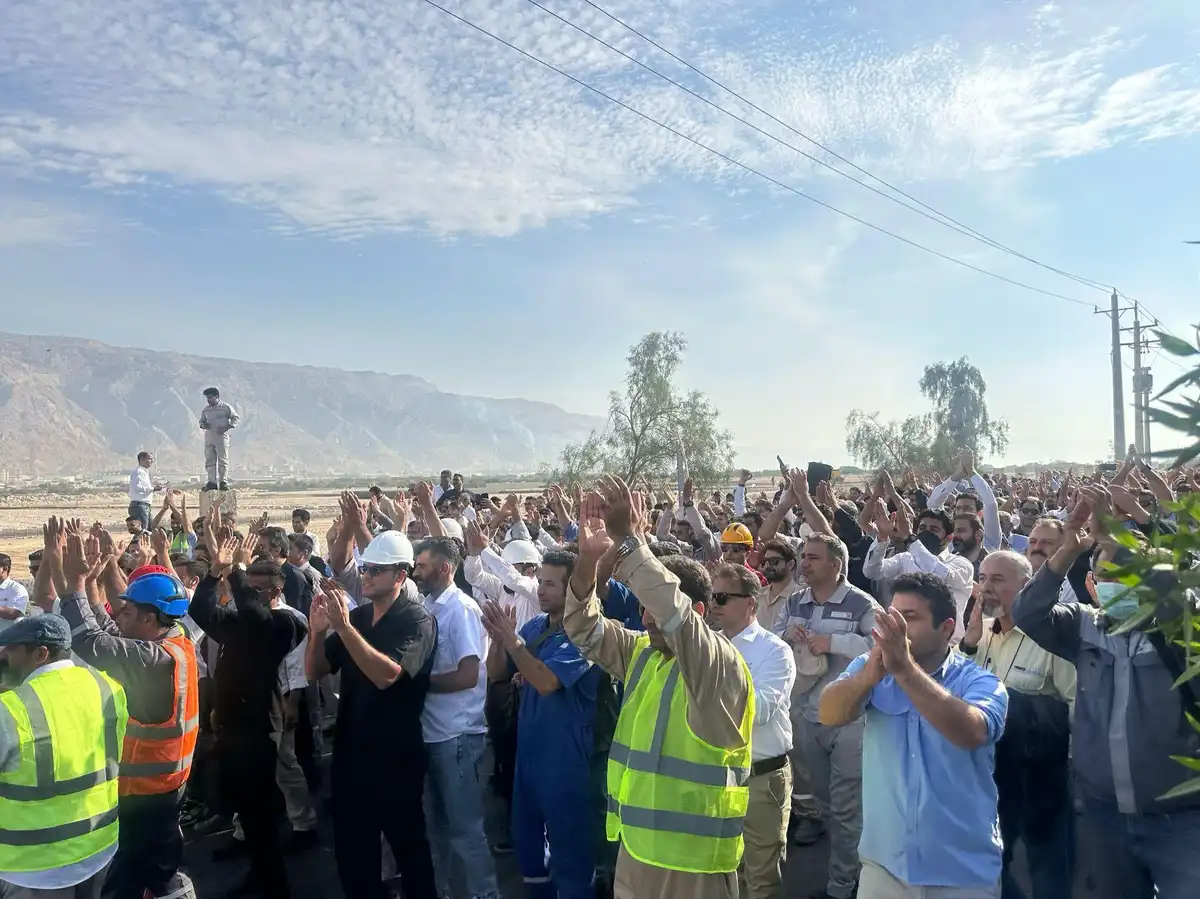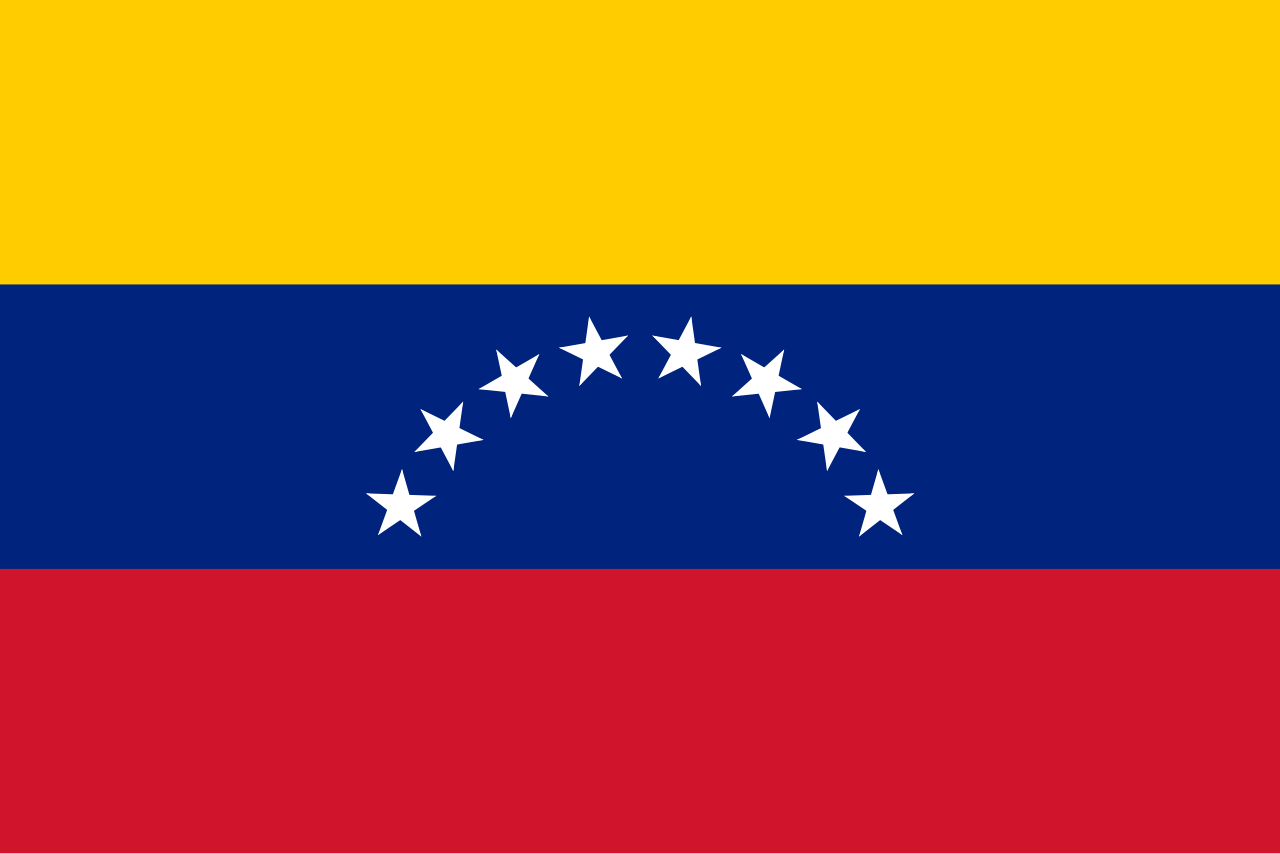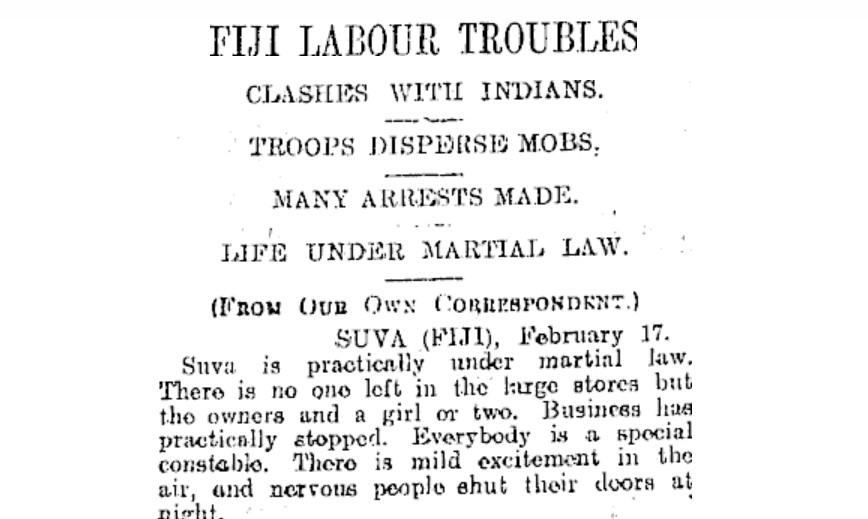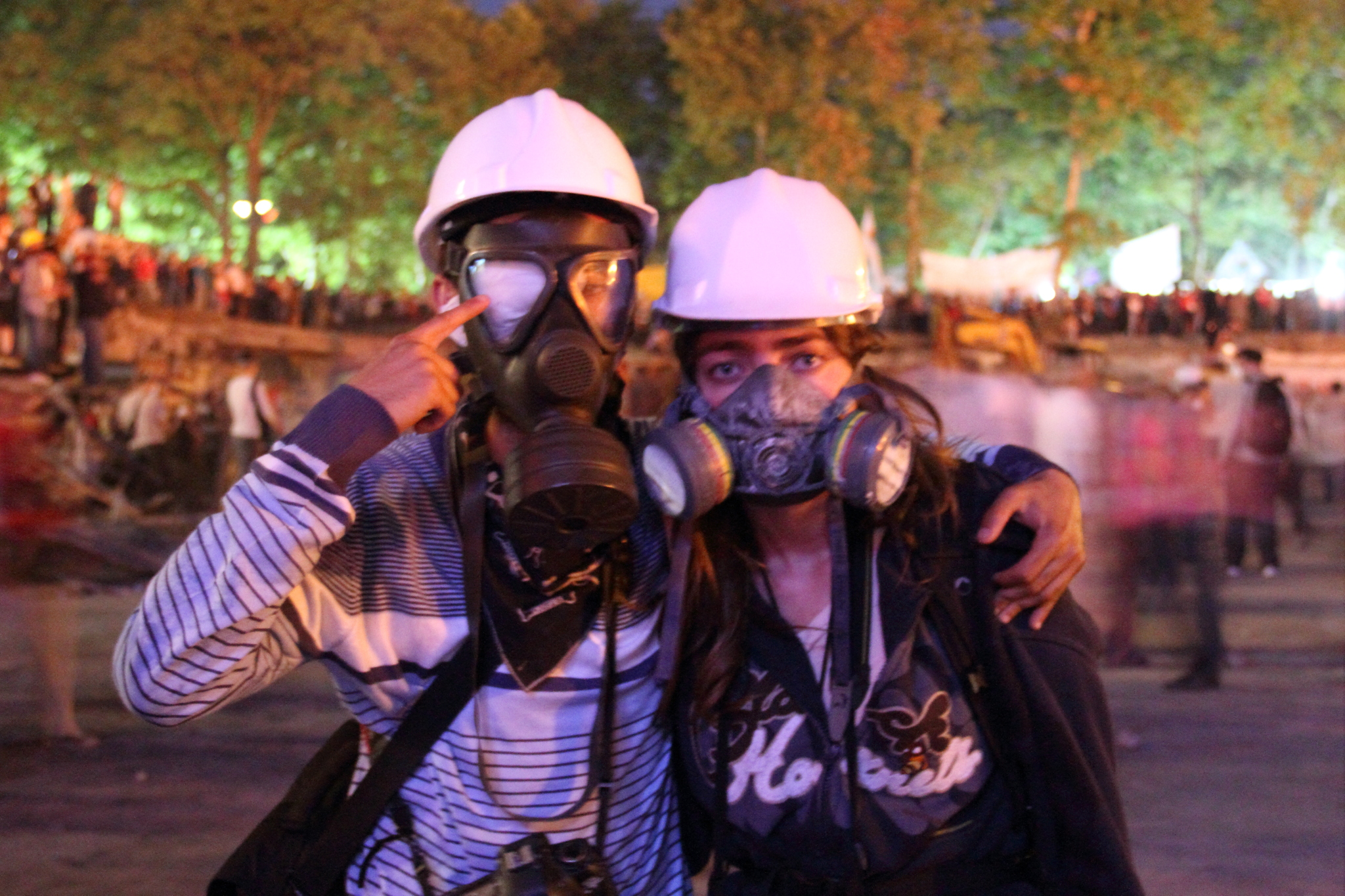The following was originally presented as a public talk to the Te Whanganui-a-Tara branch of the International Socialist Organisation and the Te Herenga Waka Victoria University of Wellington ISO club. The talk was on the topic “Imperialism in the Pacific”, and was pitched to be of value both to experienced organisation members as well as those newer to socialist ideas. It starts out describing some of the background and current conflicts occurring in the Pacific region; some theory to assist analysis of these situations is then covered; finally, this is all drawn together to describe how we should be responding to these Pacific-regional conflicts.
It is worth starting with a clear statement of position. We’re an internationalist socialist organisation in the traditions of Marx, Trotsky, and Cliff. We’re against imperialism, and we’re for workers’ rights and anti-colonial struggle. We firmly assert Pacific peoples should be free of colonial and imperial domination. This means when it comes to meddling in the Pacific we don’t side with any imperial power, be it New Zealand, Australia, the USA, China, or any other. It’s hypocrisy for New Zealand politicians and media to claim concern about China’s influence, and to try to stoke anti-Chinese sentiment within the general population. But by the same token, we have no illusions regarding the Chinese state’s ambition for expansion in markets and military. We stand for true freedom, which in the first instance means we stand for the freedom of the international working class against and without imperialism and colonialism.
1. Control, exploitation, and conflict in The Pacific
The Pacific region is sadly no stranger to blatant conflict and exploitation. From Captain Cook to the Waikato wars; from palm plantations to the island-by-island conflicts of World War II; and so on. And all this associated with a region generally portrayed in popular media as a paradise on Earth. Let’s start by examining three particular regional situations.
- New Zealand’s Empire
New Zealand as we know it today was formed through British colonialism and concerted efforts which included outright war to dispossess indigenous Māori of their land and identity. As the Pākehā ruling class became entrenched, they set their sights beyond New Zealand and to other islands within the Pacific region. By the 1920s, the Cook Islands, Niue, and Samoa were all under New Zealand control. New Zealand ensured its own Christian-morality standards were applied heavy-handedly within its dominion. For example, at one time over 60% of Niue’s adult population had been convicted of a “crime”, many of which were as petty as for holding hands (a common expression of friendship).
Nowadays, Niue has a nominally “free association” agreement with New Zealand, wherein New Zealand is by far the dominant partner. The Cook Islands are given somewhat more independence, but are nonetheless beholden to the British Monarchy. Samoa has limited-self rule under New Zealand, in return for New Zealand’s military protection. Kiribati is in a similar situation, under joint New Zealand and Australian authority, while Nauru falls under Australian authority. Although many people born in these countries are given citizenship status for the countries with larger economies, rules of citizenship and visa requirements are adjusted over time to limit the free movement of people. Movement for those without citizenship is generally contingent on visas for work-related skills. Migration under a “Skilled Migrant Category Resident Visa” is possible, but immigration is generally limited to younger people with skills which “contribute to New Zealand’s economic growth” and for which there is a perceived shortage within New Zealand, or to family of existing residents. A further example of the control of movement via borders and visas: New Zealand allows only 650 migrants per year – who must have already secured a job offer – from Kiribati, Tuvalu, Tonga and Fiji, and even this limited intake has been entirely “suspended until further notice due to Covid-19”.
These limitations on migration allow New Zealand to control its commitments to providing the benefits that come with residency and citizenship: benefits the working class has fought for and won piece by piece such as access to the nominally free healthcare system, subsidised education, a minimal social security safety net in the event of unemployment, and superannuation in retirement. Such limitations also ensure the dependence of many Pacific people on lower-reliability options such seasonal work and “aid”.
New Zealand operates a Recognised Seasonal Employer (RSE) scheme which temporarily employs workers from some Pacific countries. Although the mandated minimum pay rate for these workers is the Living Wage, this scheme nonetheless provides agricultural businesses access to a supply of relatively cheap labour with precarious employment conditions. RSE workers find it difficult to unionise or to otherwise organise collectively. They are at recurring risk of not being granted a visa or selected for employment, and they are faced with wage deductions of dubious legality for personal protective equipment, accommodation, and transport arranged by the employer. The accommodation they are provided with can be overcrowded and of low-quality.
- Taiwan
In 2020, USA House of Representatives Speaker Nancy Pelosi famously tore up President Donald Trump’s State of the Union address. The video of this action was widely publicised and lauded as a justified expression of anger at Trump’s lies, manipulation, tax cuts for the rich, cuts to benefits for the poor, threats to safe access to abortion, or any number of other possible explanations people wanted to imagine Pelosi making a stand for. It was through this same lens many watched the Democrats elected into power in the false belief they would usher in a better, safer world.
Pelosi arrived in Taiwan on 3rd August 2022 on a nominally diplomatic but clearly provocative visit which she stated demonstrated American solidarity. In her words: “We cannot stand by as the CCP proceeds to threaten Taiwan – and democracy itself.” China’s foreign ministry stated in response: the visit “has a severe impact on the political foundation of China-US relations, and seriously infringes upon China’s sovereignty and territorial integrity.” China’s response includes “targeted military operations” in the area including missile “test-launches”. Radio New Zealand reports coincidental “routine deployments” of USA ships near Taiwan: an aircraft carrier, a guided missile cruiser, a destroyer-type ship, and an amphibious assault ship. Meanwhile, New Zealand’s Foreign Minister Nanaia Mahuta has told China’s Foreign Minister Wang Yi that “de-escalation, diplomacy and dialogue” is needed. While this is indeed a true statement, we have to question why there was no similar public statement to Pelosi and the USA.
Taiwan was under imperial Chinese rule from the late 17th to late 19th century, when it became a war-spoil for Japan until the end of World War II. With the civil war victory of Mao Zedong and the Chinese Communist Party, the defeated nationalists under General Chiang Kai-shek fled to Taiwan and established a government there. To this day, the Chinese Communist Party claims Taiwan is a province within China’s territory. Meanwhile, Taiwan nowadays operates with a democratic capitalist government. The island is viewed as being a militarily strategic position, and its independence as being perhaps a threat to CCP hegemony. Through all this, it’s important to note Taiwan has a minority indigenous population who, like indigenous people the world over, appear generally ignored in the clamour of colonial and imperial priorities.
- Hong Kong
Hong Kong has a land area just over 1,000 km2. With about 7.5 million people living there, it has one of the highest human population densities on Earth. The region consists of land connected to Mainland China and a number of islands including Hong Kong Island, with a harbour area between that island and the Asian continent. The region has been under Chinese rule for most of the past 2,000 years. European traders began arriving during the 16th century, and in an attempt to contain the influence of those traders the Chinese began imposing restrictions in the 18th century. One of the products sold by Europeans was opium from India, which caused widespread addiction leading to the imperial Chinese government banning the opium trade. The British attacked China to force the Emperor to capitulate to that trade in what was termed the Opium War. Hong Kong island was given to the British as part of the subsequent peace negotiations, and a larger area known as the New Territories were leased for 99 years from 1898.
The lease on the New Territories expired in 1997, at which time the entire city including Hong Kong island was handed over to the Chinese government and was designated as a “Special Administrative Region” of China. Initially, Hong Kong was afforded significant autonomy by China, but more recently that autonomy came under increasing threat leading to tensions that exploded with authoritarian crackdowns and protests across the city. By 2019, protesters put forwards five demands to the authorities: 1) Full withdrawal of the bill which would enable extradition of Hong Kong residents to China; 2) A commission of inquiry into police brutality; 3) Retraction of the classification of protesters as “rioters”; 4) Amnesty for arrested protesters; 5) Full democracy for Hong Kong political leadership roles.
Many on the left saw the conflict in Hong Kong as having been stoked by the USA, and opted out of providing support for the protesters. The struggle was not socialist-led, and if the protesters had achieved their demands they would likely have achieved only a semi-autonomous market-led democracy. But that goal was nonetheless an improvement compared to the possibility they faced of being increasingly subject to authoritarianism by way of state surveillance and police intervention against political dissent. While the protesters may have had a different political goal to our own, their struggle was nonetheless worker-led and was for an improvement in the material conditions of workers. The International Socialist Organisation elected to express solidarity with the protesters, and Te Whanganui-a-Tara branch stood alongside Hong Kong expatriates in solidarity events led by them.
This is only a very small sample of all of the possible imperial conflicts that could be described just within the Pacific region. The entire evening could easily be filled with further examples: The CIA-backed overthrow of the Indonesian government in the 1960s; both France and the USA testing nuclear weapons in the Pacific, displacing indigenous people and poisoning the local area; the peaceful protest boat bombed by French agents in a New Zealand harbour; the numerous USA military bases throughout the Pacific region; New Zealand and Australia’s military occupation of the Solomon Islands in the early 2000s to ensure the stability required for mining and trade; and so on. However, rather than delve into further examples, we’ll move on to covering some theory with which we might better understand the conflicts already introduced.
2. Socialist theory
There are perhaps three critical topics that must be covered: an analysis of what imperialism is, so that we can consider whether various actions within the Pacific are indeed imperialism and what is motivating the conflicts; a brief overview of state capitalism, so that we can consider whether the working concept of imperialism can apply to all of the powerful actors within the Pacific; and consideration of struggles for national independence, so we can consider the value to socialists of supporting this outcome. These topics are covered in order to build a framework for beginning to understand the common threads in the earlier examples – a framework which can also be applied when seeking to understand other conflicts in the Pacific and globally.
- Imperialism
The capitalist drive for growth inevitably leads to capital becoming concentrated, over time, in the hands of an ever-dwindling number of enterprises as less successful companies are driven out of business or are absorbed by more successful ones. Monopoly is inevitable, and the so-called “natural law” of free competition which is the basis of the supposed argument in favour of capitalism is unsustainable and only temporary at best. Competition can be fierce, and where they are able, companies will take measures to prevent competitors from accessing raw materials or to otherwise drive the opponents out of business. The later phase of capitalist development is thus characterised by the desire of cartels and monopoly-aspirationists to dominate their competition by any means necessary.
To grow beyond national borders, capitalism can be “exported” – that is, surplus capital reinvested in less economically strong countries where the prices of raw materials and the wage expectations of workers are significantly lower – and this reinvestment is often supported by the more powerful states from wherein the finance capital originates. This capital investment is frequently contingent on some reciprocal expectation, ensuring even greater benefit to the investing parties. The agreement may also include a requirement for the poorer nation to purchase commodities from the investor, thus ensuring an expansion of markets. This is frequently the situation with what is labelled as “foreign aid” – an arrangement that is more about accessing resources and ensuring market growth than egalitarianism.
Over time, finance and state capital becomes increasingly closely linked, and the competitive relations between the most powerful actors sets up “spheres of influence” around the globe. Thus, imperialist expansion occurs through financial means, supported by the military deployment of arms and strategic colonial deployment of both the bourgeois and workers as necessary. Imperialism is, in Lenin’s words: “the development and direct continuation of the fundamental characteristics of capitalism in general.” It is “the monopoly stage of capitalism.” Capitalist countries including USA, Australia, and New Zealand have long histories of imperialism including exerting diplomatic, economic, and military manipulation, intimidation, and sometimes outright murder or war.
- State capitalism
In a capitalist world, the state usually exists to enforce the capitalist status quo. This means enforcing property and employment laws which ensure the continued exploitation of the working class. The state can sometimes also act in the interest of workers in so far as we have been able to gain capitulations such as legal minimum working conditions, or providing services such as public healthcare to workers sufficient to ensure social reproduction. In some cases, the state might operate larger parts of the economy such as transportation or extraction of certain resources. But it is important to note that none of these situations is socialism. Socialism is neither just the provision of social services to workers, nor just the nationalisation of industry within an otherwise capitalist environment.
A further form of state involvement is that exhibited in the Stalinist Soviet Union or in present-day China – that is, state capitalism. These states differ from the regimes we generally think of as being more obviously capitalist. Cliff offers this description: “state capitalism is the extreme theoretical limit which capitalism can reach”. Critically, state capitalism possesses a fundamentally different character from socialism. Just a few examples of such differences include: the presence of wage labour, rather than resources being shared to ensure everyone has what they need; competition in international markets, rather than internationalism; and bureaucratic and authoritarian regimes, rather than workers’ democratic control.
Despite its misleading name and some differences in surface appearance, the so-called “Communist” Party in China is just another form of capitalist government: state capitalist. As a capitalist country, it is therefore entirely predictable that China’s present rulers would engage in imperialism in the same manner as the USA’s. Thus, events described earlier in this talk, whether initiated by New Zealand, Australia, the USA, or China, are the consequences of clashing capitalist imperialist powers as they assert their dominance and seek redivision of resources and markets to their own advantage.
- National independence
A further question arises as to how socialists should respond to struggles for national independence, such as the struggles of Hong Kong and Taiwan. We are an internationalist movement, and as such we are for an international community and not a globe divided into nations with their own national interests. But on the other hand, even in the 19th century Marx supported national struggle, stating: “It is not in the least a contradiction that the international workers’ party strives for the creation of the Polish nation” – Poland being the particular example of national struggle he was considering at the time.
There could be legitimate concern that struggling for national liberation would distract workers from the necessary task of struggle for international socialism. Certainly the establishment of a new independent nation is likely to draw time and resources in the creation of the apparatus of its functioning. Without explicitly socialist intent, and within a generally capitalist world, it seems likely the newly independent nation would form along at least somewhat capitalist lines. And so we might reasonably expect workers will inevitably need to be engaged in further future struggle to achieve revolution within the nation they helped create. But if the workers have achieved at least some of their goals, they will have established a new, at least somewhat democratic independent nation which affords better safety and conditions within which to organise further struggle. And regardless, we do not always get a say in when the masses choose to rise up, or which issue provides the impetus for the working class realising their collective power.
Lenin was in favour of using the fight for national liberation as an opportunity to educate the masses as to their ability to overthrow capitalism. Trotsky pointed out the horror that would be associated with war that merely achieved re-division of resources for the imperialist ruling class. Socialists must be mindful of both possibilities. Certainly, it is possible for some large movements to be moving in counterproductive directions, and thus socialists will need to analyse each movement on its circumstance and merits and make a judgement as to what is to be gained or lost for the local working class and for the international socialist struggle as a whole.
3. So what do we do with all of this?
We’ve established there’s all manner of conflicts going on, all manner of struggles we could put our time and energies into. We could perhaps talk about these current events just out of vicarious interest, and we can talk about the theory for the sake of academic analysis alone. But that would be entirely insufficient. Now we have this knowledge, what should be our praxis? Why meet under the banner of a socialist organisation? We must ask ourselves what we are hoping to achieve – and, relevantly, what we can realistically achieve that is within our capacity, acknowledging the scale of our organisation in the present.
We can, and must, support the right of working-class people to defend themselves against imperialist threat, and to seek independence from a larger capitalist state. This applies even when their goals for now are not revolutionary socialist ones. We must simultaneously condemn the actions of imperialist nations to coerce, threaten, escalate, and take by force. The ISO utilises various forms of media to communicate with the wider public: our social media pages; our website; the Socialist Review magazine; and a newssheet. ISO members must ensure we are utilising these tools to communicate our analysis of imperialism in the here and now, as a counterpoint to the bourgeois media which holds clearly vested interests. But our actions need not be limited to mere writing about conflict. We can, have, and must continue to stand in solidarity with the people whose regions are threatened by imperialist expansion. With regards both the Taiwan and Hong Kong examples, we can simultaneously support their independence from China and condemn any USA and USA-aligned meddling designed to provoke China by proxy. Regarding New Zealand’s empire, we can advocate and agitate for the withdrawal of New Zealand’s interference in the decision-making of smaller Pacific nations, while advocating New Zealand provide infrastructure support to those nations as requested and without strings attached.
There is no doubt the Pacific Islands have been a source of cheap labour which New Zealand capitalists have felt entitled to draw upon at their leisure and then eject the people who provide that labour at a moment’s notice. Only in late 2021, New Zealand issued an official apology for what was termed the Dawn Raids – a period of particularly viscous enforcement of visa rules which empowered racist police and which resulted in traumatised and separated families. Meanwhile climate change and rising sea levels will severely affect many Pacific Island people and will likely require mass migration. We could go some way towards addressing the injustices of both of these issues simply by opening our borders and allowing free movement of people. At minimum, enabling the free movement, relocation, and full social support and social participation rights of Pacific Island people should be a priority. We can take every opportunity to make such demands a part of conversations and movements we are involved in.
The economic strong-arming, military posturing, and related empire-strengthening activities discussed above are an inevitable result of the underlying economic system. Re-division of economic resources between imperialists will continue without consideration of the affected working-class people, who will be subject to increasing economic hardship, environmental destruction, and displacement from their land. Imperialist greed will never be satisfied, and thus the ruin imperialism brings to this region of the world will continue until either all resources are completely exhausted or the capitalist system itself is disposed of. As a propaganda group, the International Socialist Organisation of Aotearoa is at yet too small to pose a direct challenge to the capitalist system or the states and powerful bourgeois actors who carry out its destructive imperative. Such a challenge requires a cohered mass movement of the working class. Our role is to provide analysis and information to assist the working class to recognise the necessity of rising up and replacing capitalism with a system that provides to each person their needs. Hopefully this material has gone some small way towards providing you with such an analysis, and motivation to work towards changing this situation. The Pacific, as all the world, should be a paradise and not a battleground. If you agree, join us in making a better world possible.









